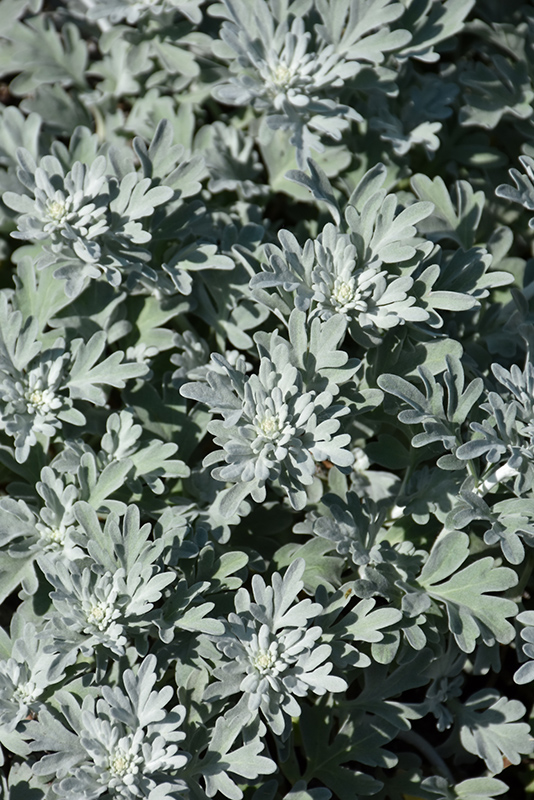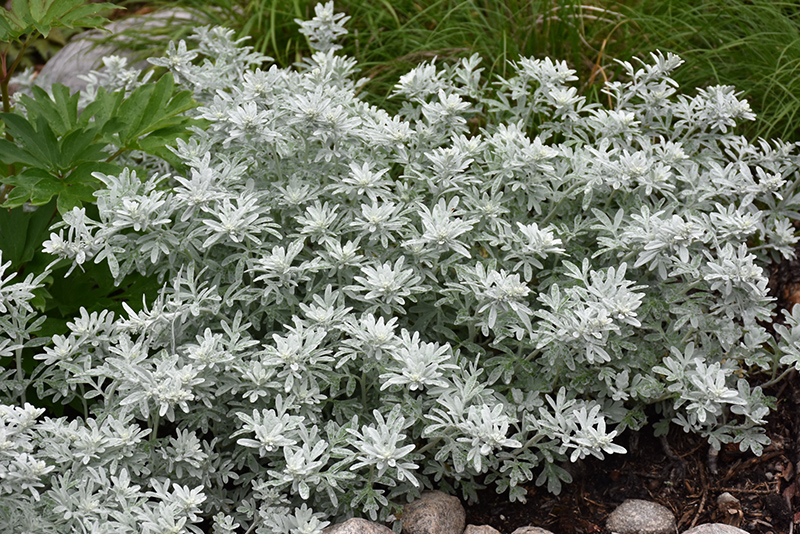Silver Brocade Artemisia
Artemisia stelleriana 'Silver Brocade'
Height: 12 inches
Spread: 24 inches
Sunlight:
![]()
![]()
Hardiness Zone: 2a
Other Names: Wormwood, Sage, Mugwort
Description:
This selection, with its vigorous growth and a mounded habit, is an amazing addition to garden beds, borders and containers; silvery-blue ferny foliage adds a lovely, fine texture to landscapes; low maintenance and drought tolerant once established
Ornamental Features
Silver Brocade Artemisia's attractive deeply cut ferny compound leaves emerge silver in spring, turning silvery blue in color throughout the season on a plant with a mounded habit of growth.
Landscape Attributes
Silver Brocade Artemisia is a dense herbaceous perennial with a mounded form. Its relatively fine texture sets it apart from other garden plants with less refined foliage.
This plant will require occasional maintenance and upkeep, and is best cleaned up in early spring before it resumes active growth for the season. Deer don't particularly care for this plant and will usually leave it alone in favor of tastier treats. It has no significant negative characteristics.
Silver Brocade Artemisia is recommended for the following landscape applications;
- Mass Planting
- Rock/Alpine Gardens
- Border Edging
- Groundcover
Planting & Growing
Silver Brocade Artemisia will grow to be about 12 inches tall at maturity, with a spread of 24 inches. Its foliage tends to remain dense right to the ground, not requiring facer plants in front. It grows at a medium rate, and under ideal conditions can be expected to live for approximately 10 years. As an herbaceous perennial, this plant will usually die back to the crown each winter, and will regrow from the base each spring. Be careful not to disturb the crown in late winter when it may not be readily seen!
This plant does best in full sun to partial shade. It prefers dry to average moisture levels with very well-drained soil, and will often die in standing water. It is considered to be drought-tolerant, and thus makes an ideal choice for a low-water garden or xeriscape application. It is particular about its soil conditions, with a strong preference for clay, alkaline soils, and is able to handle environmental salt. It is highly tolerant of urban pollution and will even thrive in inner city environments. This is a selected variety of a species not originally from North America. It can be propagated by division; however, as a cultivated variety, be aware that it may be subject to certain restrictions or prohibitions on propagation.


